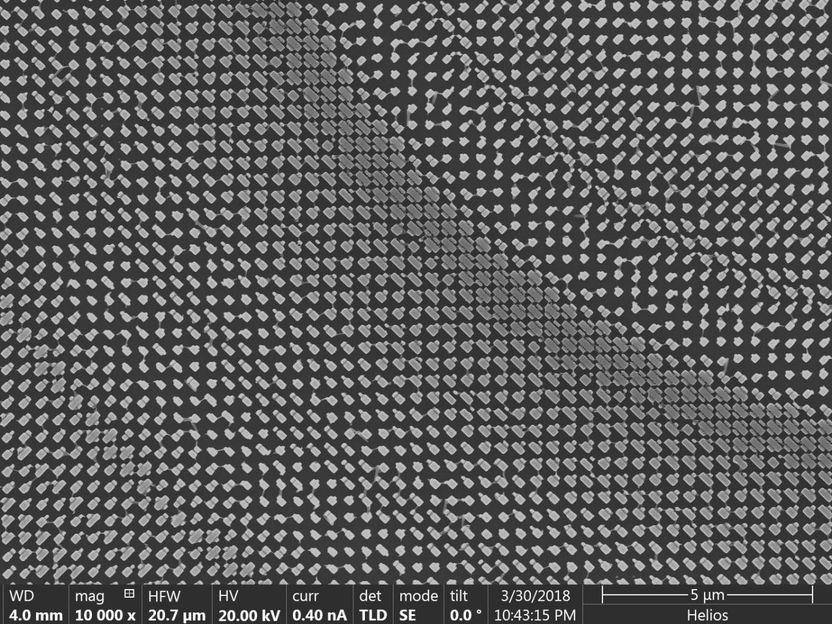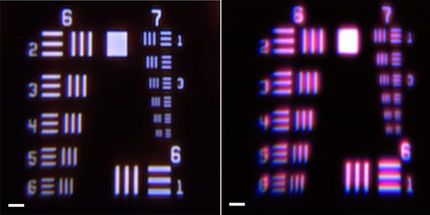Broadband achromatic metalens focuses light regardless of polarization
New design doubles the efficiency of the metalens
We live in a polarized world. No, we aren't talking about politics -- we're talking about light. Much of the light we see and use is partially polarized, meaning its electric field vibrates in specific directions. lenses designed to work across a range of applications, from phone cameras to microscopes and sensors, need to be able to focus light regardless of its polarization.

These newly designed nano-structures on the surface of a metalens can focus light regardless of its polarization, doubling the efficiency of the lens.
Capasso Lab/Harvard SEAS
Researchers believed that symmetric nanostructures such as circular pillars were essential building blocks to develop photonic devices that are not sensitive to polarization. Now, researchers from the Harvard John A. Paulson School of Engineering and Applied Sciences (SEAS) have developed a polarization-insensitive metalens comprised of non-symmetric nanofins that can achromatically focus light across the visible spectrum without aberrations. This flat lens could be used for everything from virtual or augmented reality headsets to microscopy, lithography, sensors, and displays.
"By making this lens polarization insensitive, we have doubled the efficiency of the metalens from previous iterations," said Wei Ting Chen, a research associate at SEAS and first author of the paper. "This is the first paper that demonstrates both achromatic and polarization insensitive focusing in the visible spectrum."
The research was led by Federico Capasso, the Robert L. Wallace Professor of Applied Physics and Vinton Hayes Senior Research Fellow in Electrical Engineering at SEAS.
In previous research, Capasso, Chen and their team demonstrated that arrays of titanium dioxide nanofins could equally focus wavelengths of light and eliminate chromatic aberration, but those lenses could only focus a circularly polarized light.
"This meant we were essentially discarding half of the incident light which does not possess the right polarization," said Alexander Zhu, co-author of the study and graduate student at SEAS.
In this latest design, the researchers changed the layout of the nanofins, positioning each pillar so that it is either parallel or perpendicular to its neighbor.
"This new design gives us a lot of freedom to tune the geometrical parameters of the metalens, which allows us to better achieve achromatic focusing across the entire visible range," said Chen.
"Next we aim to maximize efficiency and make much larger-size achromatic metalenses to bring them into everyday life for a wide range of applications," said Capasso
Harvard's Office of Technology Development has protected the intellectual property relating to this project and is exploring commercialization opportunities.
Original publication
Other news from the department science

Get the analytics and lab tech industry in your inbox
By submitting this form you agree that LUMITOS AG will send you the newsletter(s) selected above by email. Your data will not be passed on to third parties. Your data will be stored and processed in accordance with our data protection regulations. LUMITOS may contact you by email for the purpose of advertising or market and opinion surveys. You can revoke your consent at any time without giving reasons to LUMITOS AG, Ernst-Augustin-Str. 2, 12489 Berlin, Germany or by e-mail at revoke@lumitos.com with effect for the future. In addition, each email contains a link to unsubscribe from the corresponding newsletter.

























































